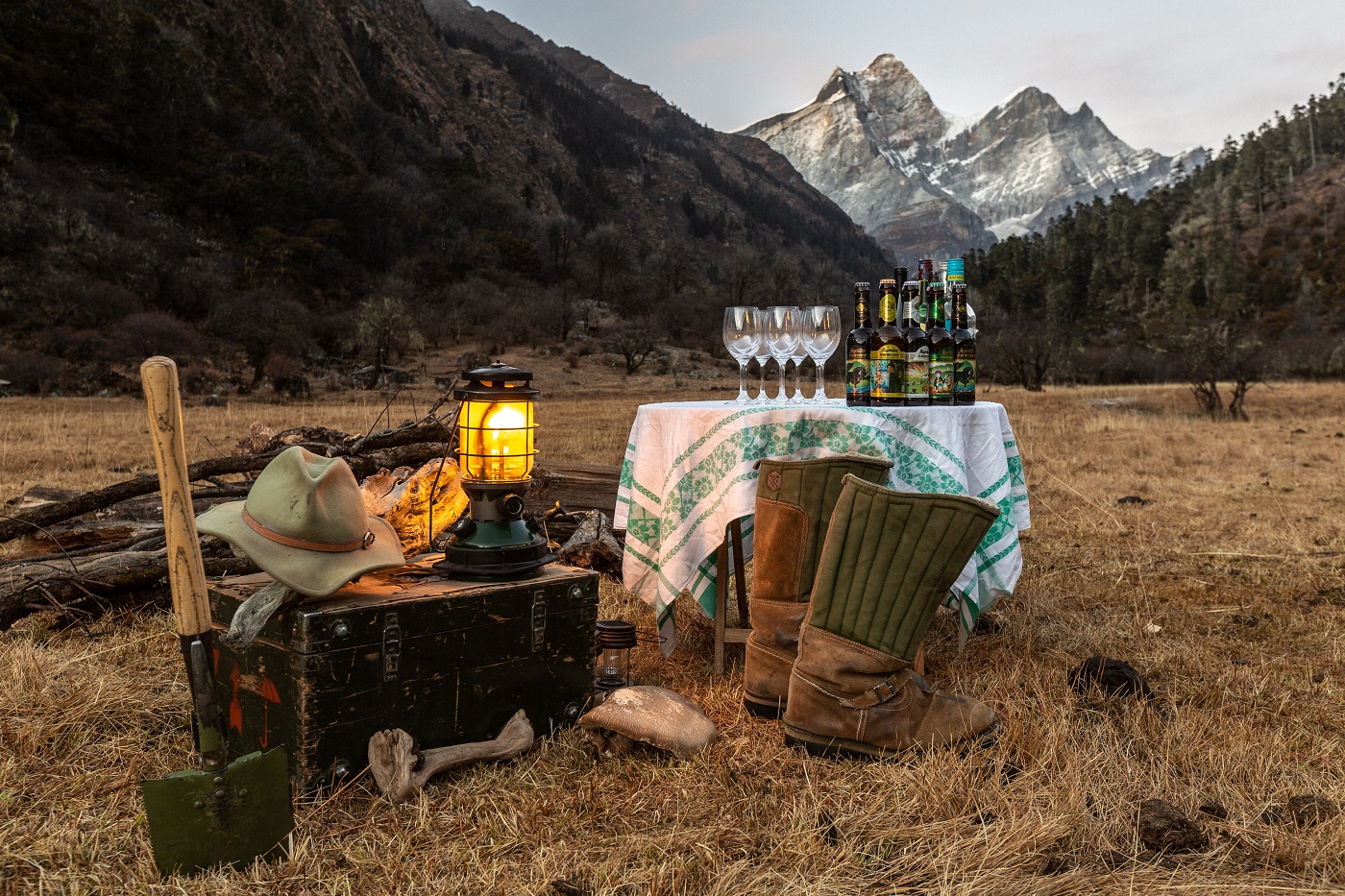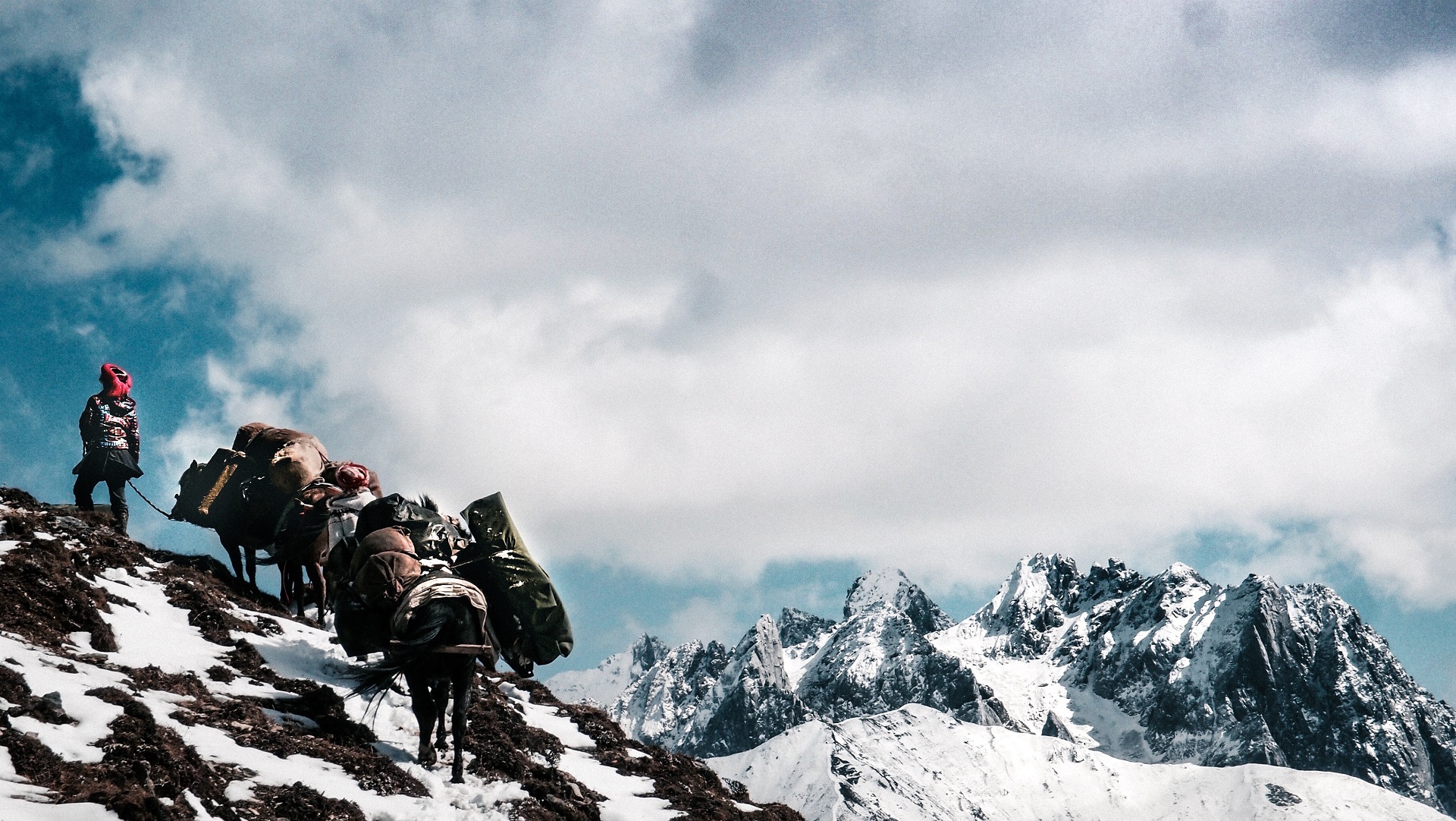 Constantin de Slizewicz作家,法国记者和开放空间的爱好者,十年前在云南西部的台阶上定居。然后,他走上了伟大探险家的脚步,如着名的路易斯·利奥塔(Louis Liotard),探索了中国的局限。他第一次到中国在商学院实习,他会发现这个国家是“他自己的天然土壤”。二十多年前,我在鲁古湖的青年时期,曾经在一个随机的夜晚管理当地宾馆时,曾短暂地见过康斯坦丁。然后在去年年底,我终于成了他在香格里拉的客人,在那里我有机会见到他的伴侣和他的家人。我也觉得在家里。在他令人印象深刻的西藏房子里用餐,我让他分享他的故事,就这样吧:CdS:我为中国和法国的印刷机工作了五年。在昆明生活的同时,我经常去探索华人居住的西部乡村。这次与这个农村世界的会面,我与这些人分享了我的日子,让我明白物质生活对我来说并不重要。就在那时我意识到我不想成为旁观者而是演员。受约瑟夫康拉德小说和华纳赫佐格电影的英雄们的启发,实现梦想的强烈愿望不断增长。受到西藏文化的影响,我的选择是把自己固定在这片精神之地:生活在香格里拉乡村的传统农场,成为西藏城门的一个大篷车。遵循古老的路线,过着不朽的梦想。云南位于中国的最西南,与越南,老挝,缅甸和西藏接壤,云南 – 字面意思是“云南” – 毫无疑问,地理位置,气候和文化,是这个地区的十字路口。面积相当于法国的三分之二,这个省聚集了各种各样的景观,从西双版纳繁茂的丛林到西藏游行的令人眼花缭乱的山峰,从昆明石林到元阳的水稻梯田,清澈的海水泸沽湖到湄公河谷的深峡谷。在这些对比的场景中,康斯坦丁知道总会有太阳让他振作起来。最和谐,气候仍然温和。一年三百天,平均气温在十到三十度之间。它的主要城镇昆明也被称为“永恒的春天之城”。
Constantin de Slizewicz作家,法国记者和开放空间的爱好者,十年前在云南西部的台阶上定居。然后,他走上了伟大探险家的脚步,如着名的路易斯·利奥塔(Louis Liotard),探索了中国的局限。他第一次到中国在商学院实习,他会发现这个国家是“他自己的天然土壤”。二十多年前,我在鲁古湖的青年时期,曾经在一个随机的夜晚管理当地宾馆时,曾短暂地见过康斯坦丁。然后在去年年底,我终于成了他在香格里拉的客人,在那里我有机会见到他的伴侣和他的家人。我也觉得在家里。在他令人印象深刻的西藏房子里用餐,我让他分享他的故事,就这样吧:CdS:我为中国和法国的印刷机工作了五年。在昆明生活的同时,我经常去探索华人居住的西部乡村。这次与这个农村世界的会面,我与这些人分享了我的日子,让我明白物质生活对我来说并不重要。就在那时我意识到我不想成为旁观者而是演员。受约瑟夫康拉德小说和华纳赫佐格电影的英雄们的启发,实现梦想的强烈愿望不断增长。受到西藏文化的影响,我的选择是把自己固定在这片精神之地:生活在香格里拉乡村的传统农场,成为西藏城门的一个大篷车。遵循古老的路线,过着不朽的梦想。云南位于中国的最西南,与越南,老挝,缅甸和西藏接壤,云南 – 字面意思是“云南” – 毫无疑问,地理位置,气候和文化,是这个地区的十字路口。面积相当于法国的三分之二,这个省聚集了各种各样的景观,从西双版纳繁茂的丛林到西藏游行的令人眼花缭乱的山峰,从昆明石林到元阳的水稻梯田,清澈的海水泸沽湖到湄公河谷的深峡谷。在这些对比的场景中,康斯坦丁知道总会有太阳让他振作起来。最和谐,气候仍然温和。一年三百天,平均气温在十到三十度之间。它的主要城镇昆明也被称为“永恒的春天之城”。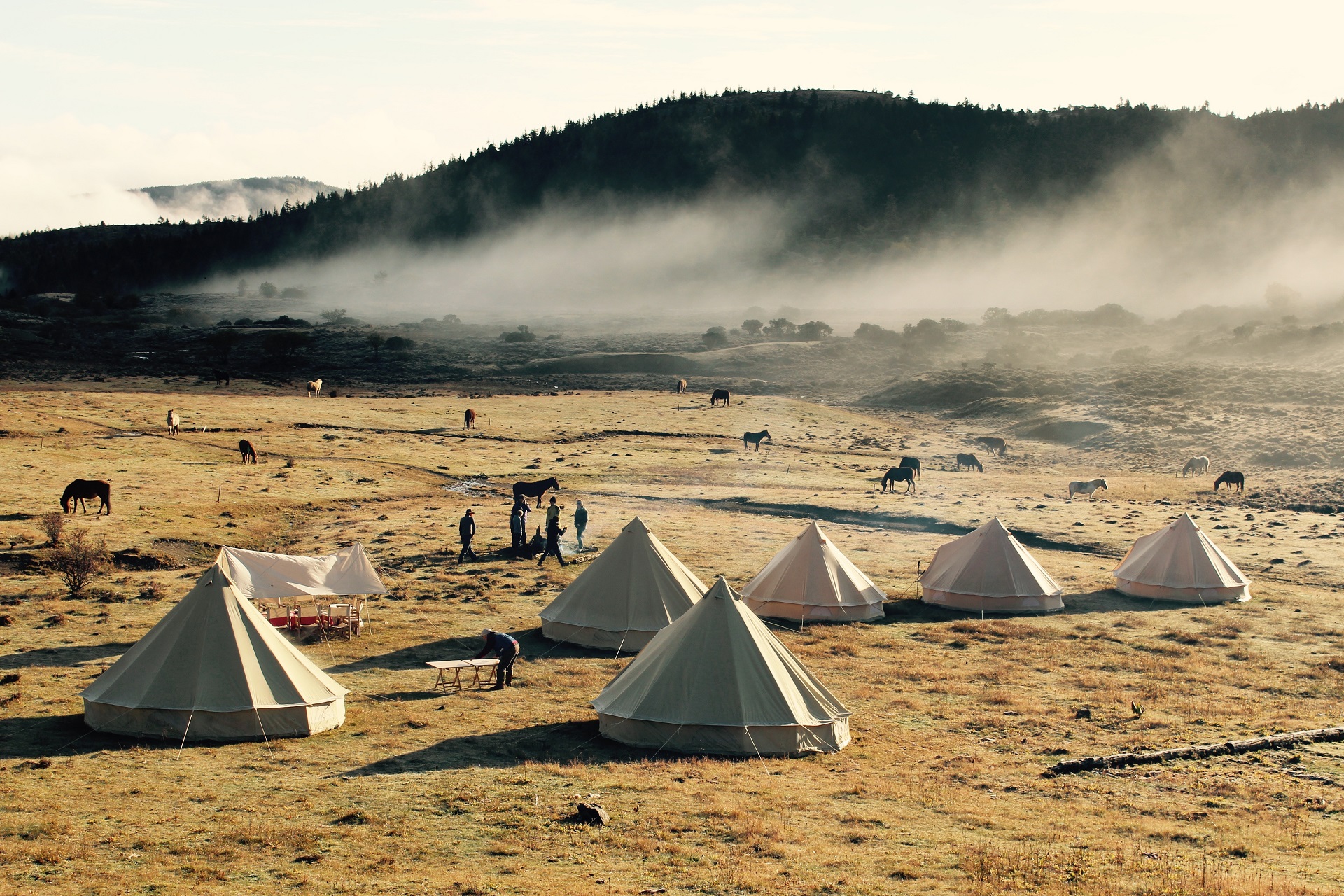
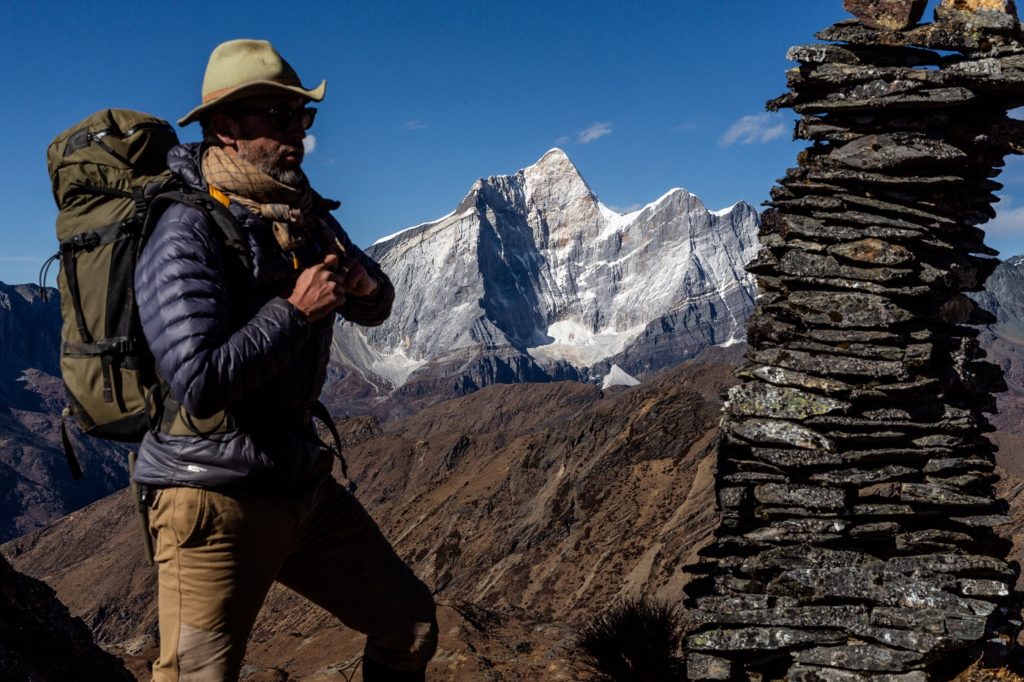 CdS:Living near this wilderness, I could easily go to unknown paths, resort to clearings. The remoteness and isolation of Yunnan from the rest of China, had partly preserved ecological dramas caused by this dazzling and blinding rate of growth.
CdS:Living near this wilderness, I could easily go to unknown paths, resort to clearings. The remoteness and isolation of Yunnan from the rest of China, had partly preserved ecological dramas caused by this dazzling and blinding rate of growth. 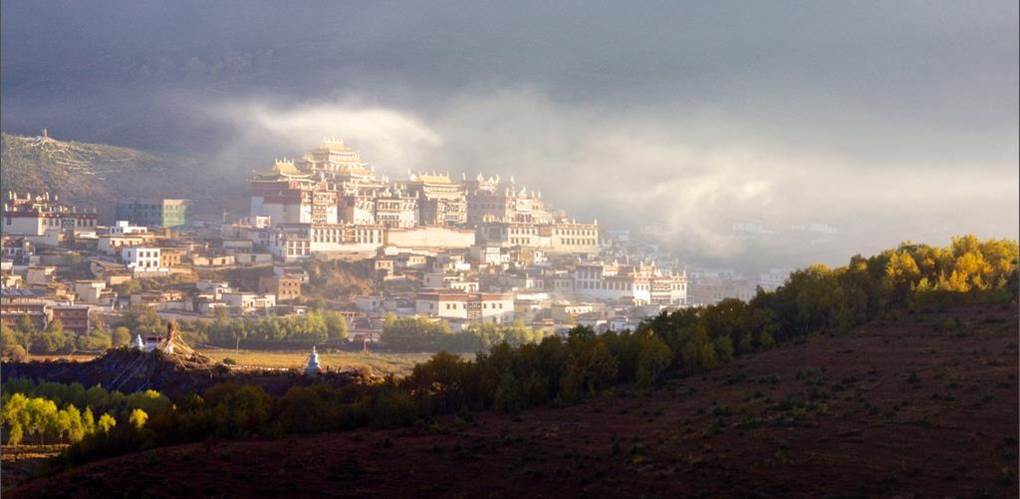 Traveling through these buxom countryside, climbing mountains, I discovered valleys; these jewels where are concentrated plots of land still grown at the rate of buffalo and yak. Following the rivers, in the night I approached hamlets and villages. If they had not thrown stones at me, I invited myself to those people who lived as men should be. Under their thatched, slate or shingle roofs, be it among the Yi, the Tibetans or the Wa, around this fire, always the same but each time new, repeating their archaic language, I learned to lift my glass. By drinking their coarse spirits, invincible charm, I forgot the bitter taste of their miseries and together we sang our hymns to life. In March 2005, tired of my life in the city, I decided to leave Kunming to settle on the banks of Lake Lugu, the country of the Mosuo people. I stayed there for two years to run a guest house in which, during the winter, I found peace and time for writing my first book, The Forgotten Peoples of Tibet. In 2007, a little truce with China, a return to France was needed to write two other books: The Gunboats of Yang Tse Kiang and 2010, Drunk China, but especially to launch the Tea Caravan foundations in Shangri-La. The first time I went to Shangri-La it was in 1999, I was twenty-two years old, the city was still called Zhongdian and it was a small town where locals hung their horses at the entrance of stores. At this first meeting, I knew that my life would one day go to this Tibetan world that seemed strangely so familiar to me. Like a plant, the seed was in the ground, the weather made it germinate. Today the tree is bearing fruit. Like a port, Shangri-la is the perfect place to launch gear to this ocean of mountains that is the Tibetan universe. I was fortunate six years ago to rent for twenty years an old and solid Tibetan farm located in a beautiful countryside half an hour from Shangri-La.
Traveling through these buxom countryside, climbing mountains, I discovered valleys; these jewels where are concentrated plots of land still grown at the rate of buffalo and yak. Following the rivers, in the night I approached hamlets and villages. If they had not thrown stones at me, I invited myself to those people who lived as men should be. Under their thatched, slate or shingle roofs, be it among the Yi, the Tibetans or the Wa, around this fire, always the same but each time new, repeating their archaic language, I learned to lift my glass. By drinking their coarse spirits, invincible charm, I forgot the bitter taste of their miseries and together we sang our hymns to life. In March 2005, tired of my life in the city, I decided to leave Kunming to settle on the banks of Lake Lugu, the country of the Mosuo people. I stayed there for two years to run a guest house in which, during the winter, I found peace and time for writing my first book, The Forgotten Peoples of Tibet. In 2007, a little truce with China, a return to France was needed to write two other books: The Gunboats of Yang Tse Kiang and 2010, Drunk China, but especially to launch the Tea Caravan foundations in Shangri-La. The first time I went to Shangri-La it was in 1999, I was twenty-two years old, the city was still called Zhongdian and it was a small town where locals hung their horses at the entrance of stores. At this first meeting, I knew that my life would one day go to this Tibetan world that seemed strangely so familiar to me. Like a plant, the seed was in the ground, the weather made it germinate. Today the tree is bearing fruit. Like a port, Shangri-la is the perfect place to launch gear to this ocean of mountains that is the Tibetan universe. I was fortunate six years ago to rent for twenty years an old and solid Tibetan farm located in a beautiful countryside half an hour from Shangri-La. 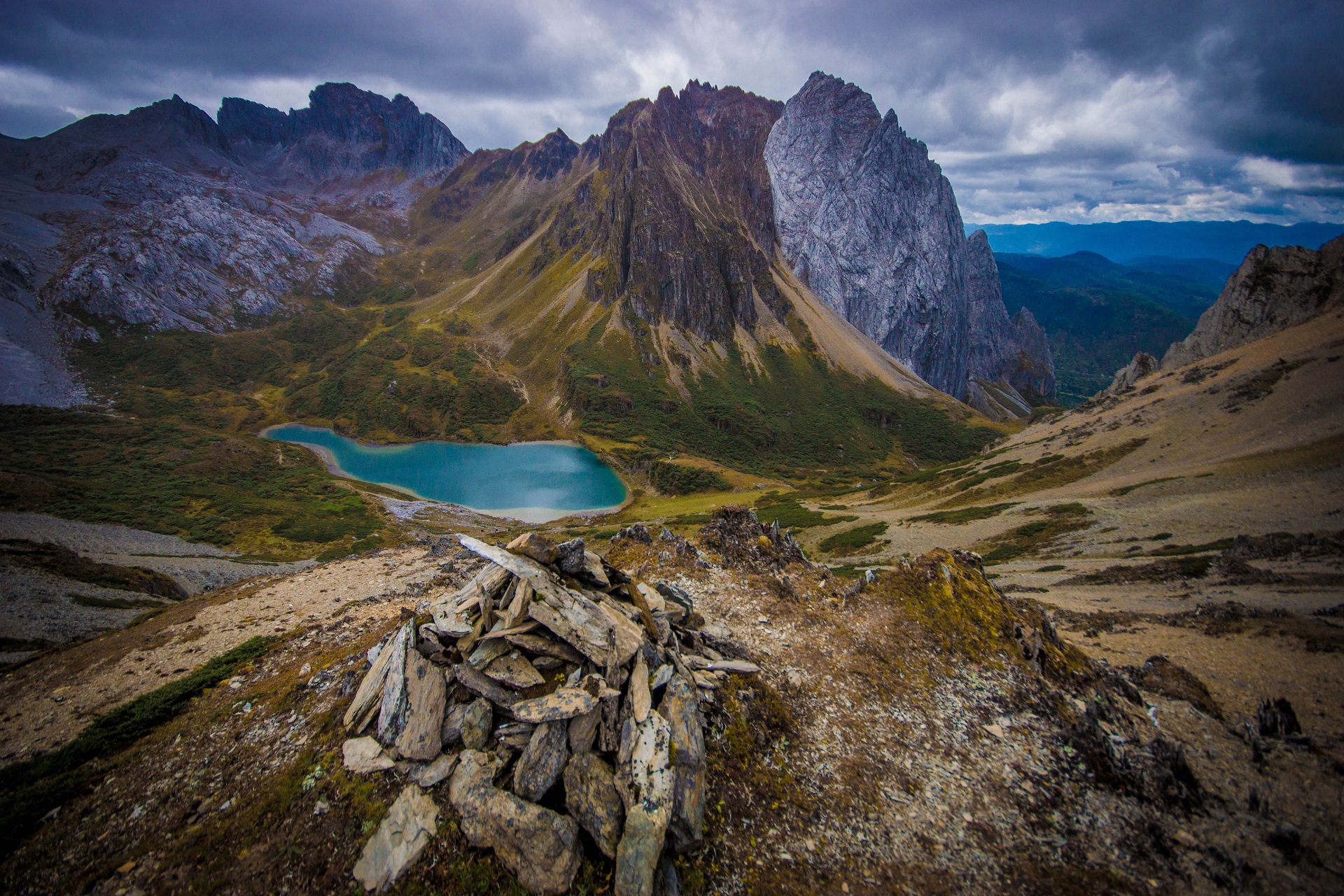
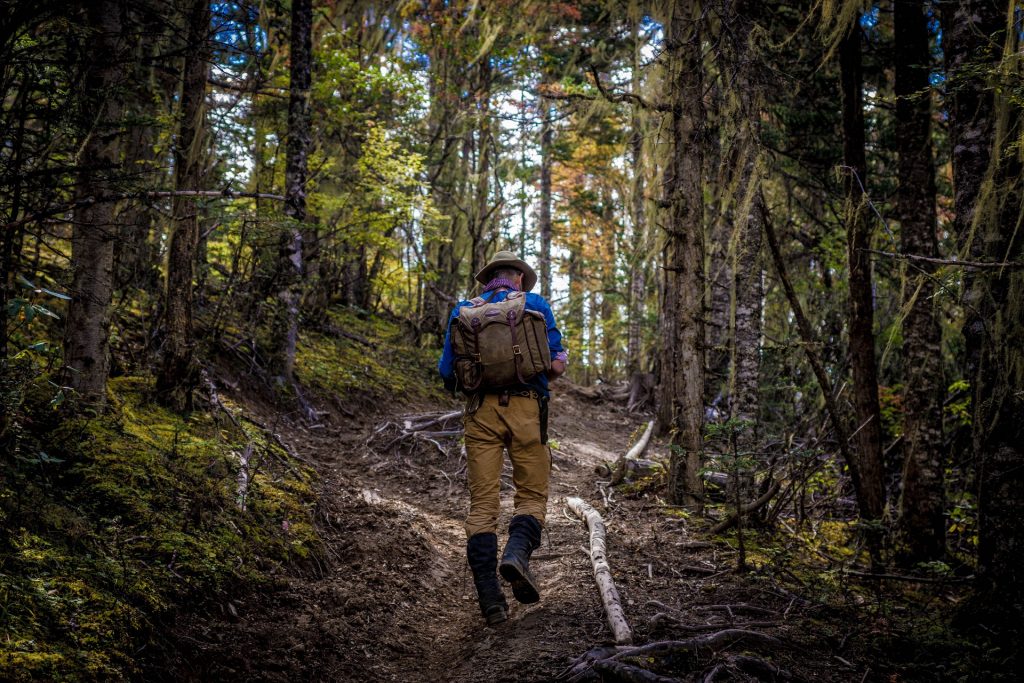 With his wife Phoebe they have restored and arranged the Farm, and now with their son Konrad they lived there for five years. The Farm is the starting point of the horse caravans. With Tibetan village friends from Zuomogu and helped by his teammate Guillaume de Penfentenyo they offer guests hikes to the magnificent peaks of the Aboudje massif, following the wish to offer a more (material and cultural) experience in this changing Tibetan rural world. The noble idea of the caravan is to be able to transmit to the younger local generations the art of fighting and accompanying horses in the mountains but also to re-appropriate these territories in alpine pastures. Thanks to this a certain fraternity is born with the Tibetans of the valley. They are neighbors, friends with whom share joys and sorrows of the daily life.
With his wife Phoebe they have restored and arranged the Farm, and now with their son Konrad they lived there for five years. The Farm is the starting point of the horse caravans. With Tibetan village friends from Zuomogu and helped by his teammate Guillaume de Penfentenyo they offer guests hikes to the magnificent peaks of the Aboudje massif, following the wish to offer a more (material and cultural) experience in this changing Tibetan rural world. The noble idea of the caravan is to be able to transmit to the younger local generations the art of fighting and accompanying horses in the mountains but also to re-appropriate these territories in alpine pastures. Thanks to this a certain fraternity is born with the Tibetans of the valley. They are neighbors, friends with whom share joys and sorrows of the daily life. 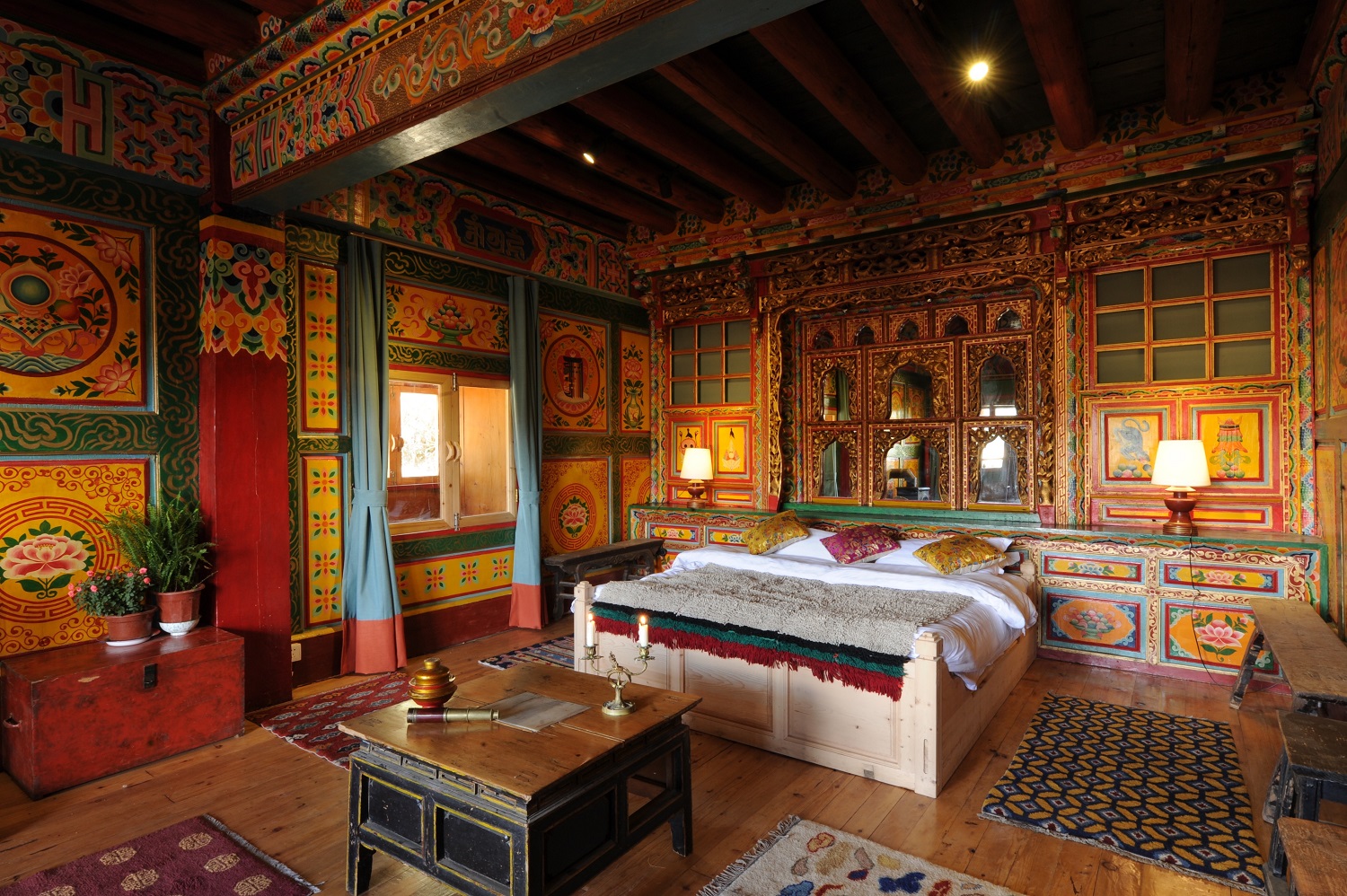
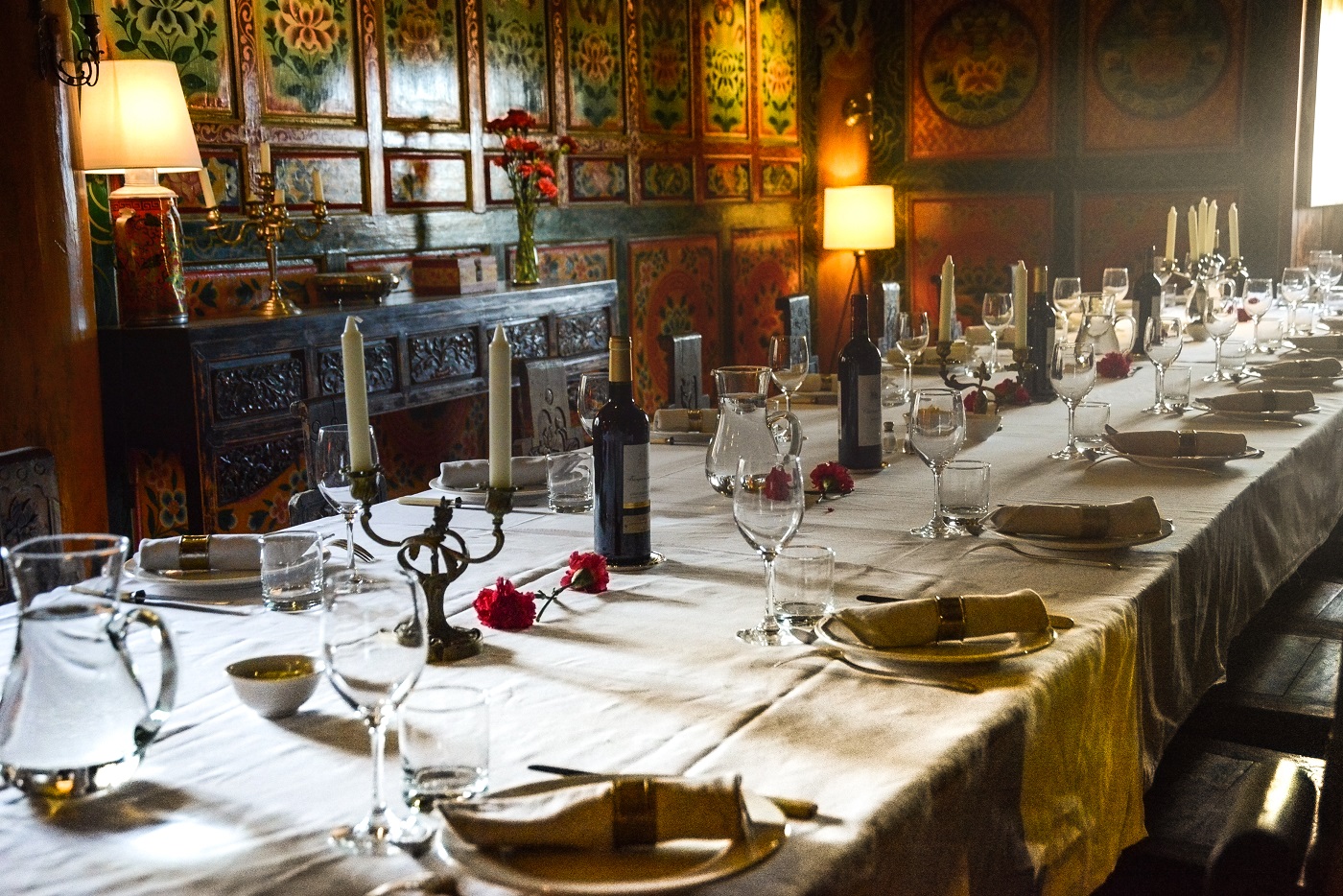
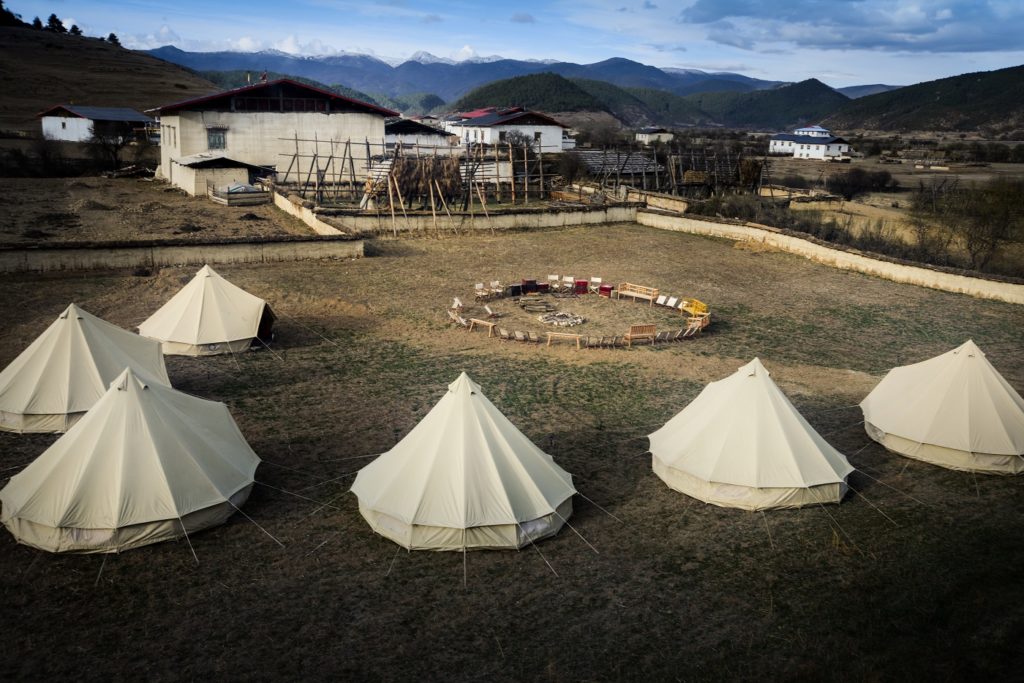 CdS: The idea of the Caravanwas born in 2006 during the writing of my first book, when I browsed the works of explorer such as Guibaut and Liotard, Bacot, Orleans, Ollone, Rock, Forest, Ward … Secretly I am jealous of these high class travelers and the desire of the Tea Caravans was to be able to resurrect the elegance of their voyages of exploration in Tibetan land. Because it is certain, to reach and appreciate these areas – several passes are more than 4,000 meters – the traditional caravan is the most appropriate: spacious Bell tents in canvas, carpet, furniture, stove , dishes and silverware, silky wines and alcohols, candlesticks, cooks … For example, for 8 guests, we leave with almost two tons of equipment worn by more than forty horses and a crew of twenty people … a minimum to enjoy the fairy tale a camp at 3,700 meters altitude and take first row for the most beautiful star night!
CdS: The idea of the Caravanwas born in 2006 during the writing of my first book, when I browsed the works of explorer such as Guibaut and Liotard, Bacot, Orleans, Ollone, Rock, Forest, Ward … Secretly I am jealous of these high class travelers and the desire of the Tea Caravans was to be able to resurrect the elegance of their voyages of exploration in Tibetan land. Because it is certain, to reach and appreciate these areas – several passes are more than 4,000 meters – the traditional caravan is the most appropriate: spacious Bell tents in canvas, carpet, furniture, stove , dishes and silverware, silky wines and alcohols, candlesticks, cooks … For example, for 8 guests, we leave with almost two tons of equipment worn by more than forty horses and a crew of twenty people … a minimum to enjoy the fairy tale a camp at 3,700 meters altitude and take first row for the most beautiful star night!
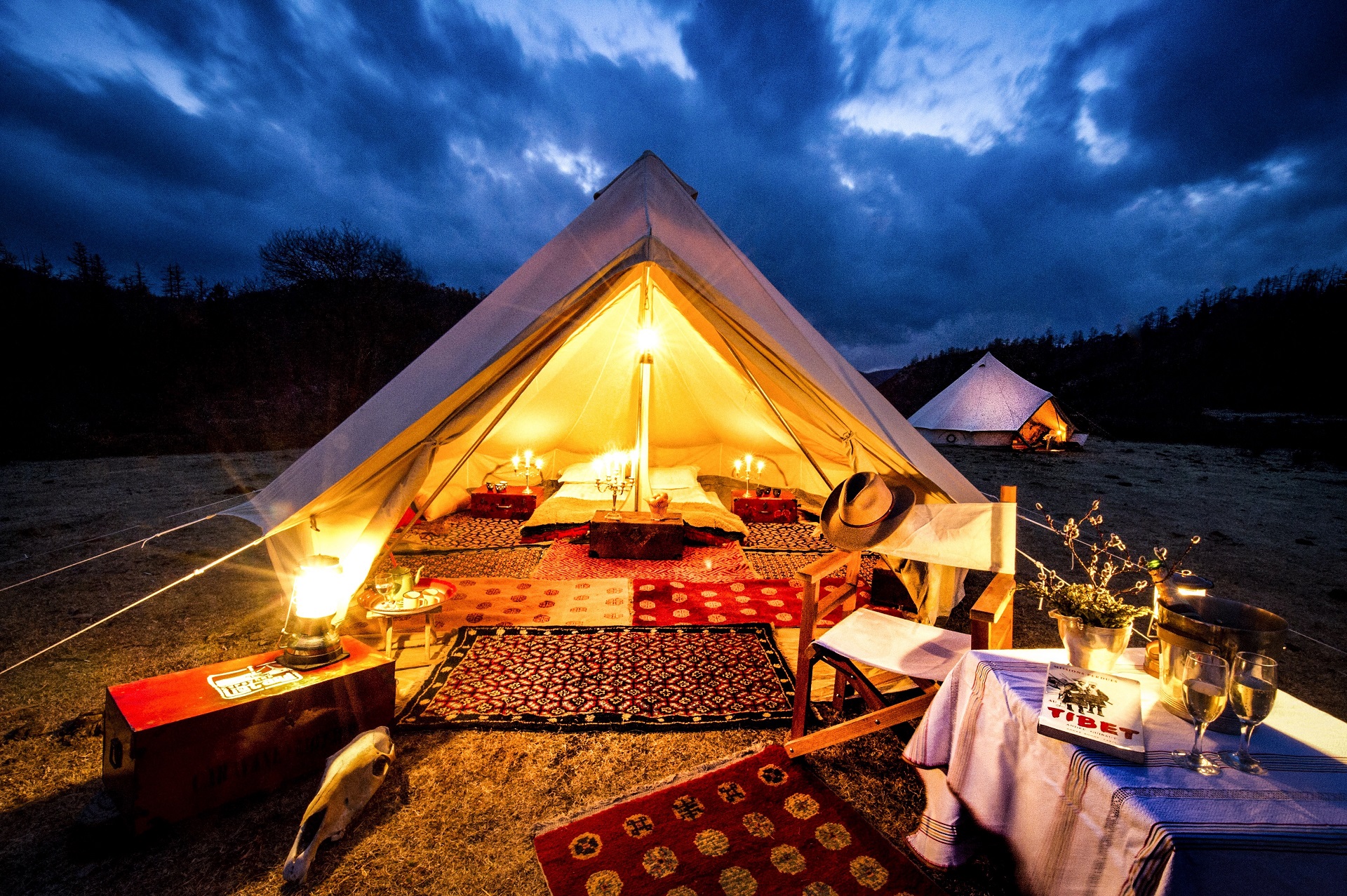
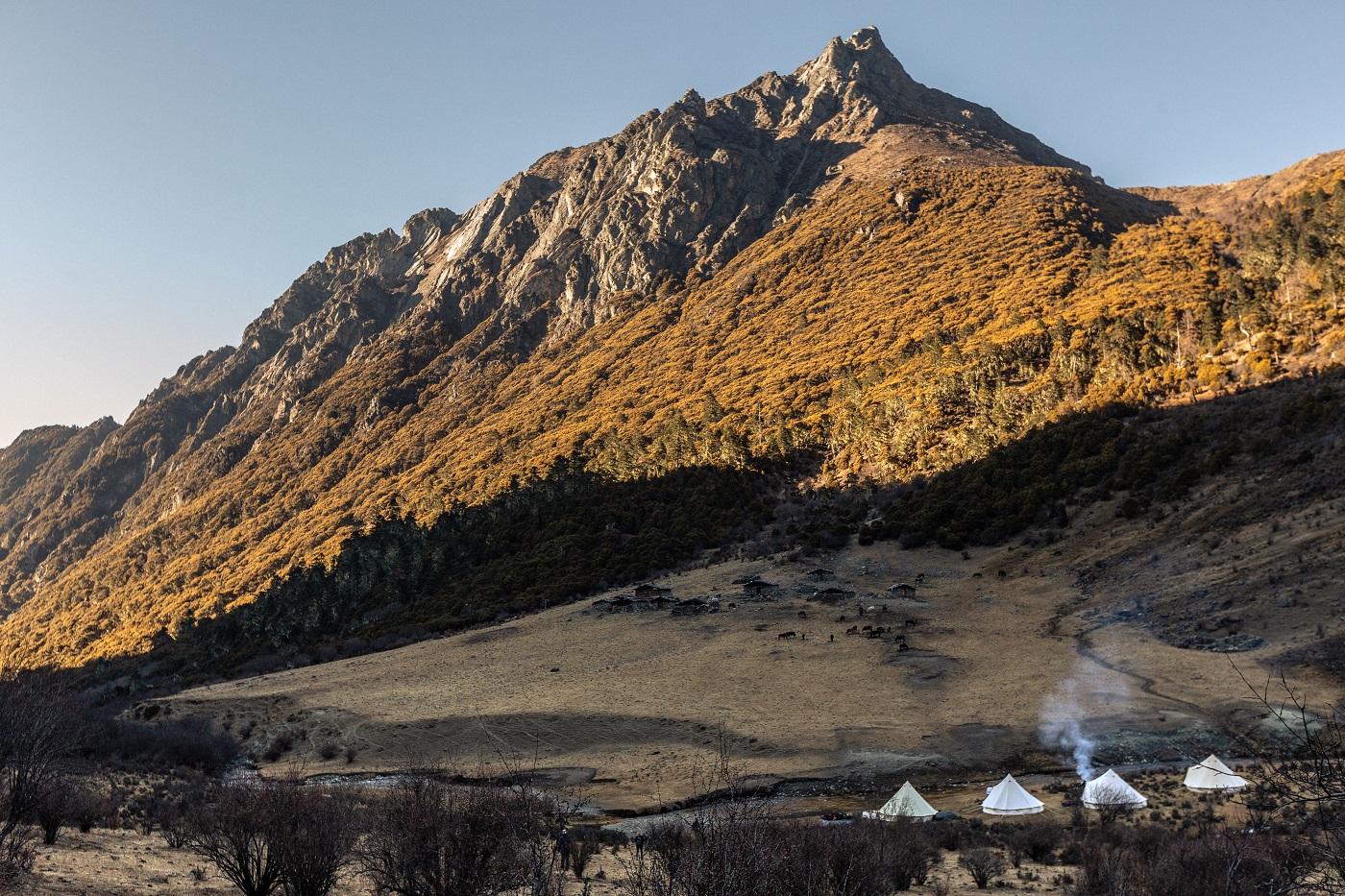
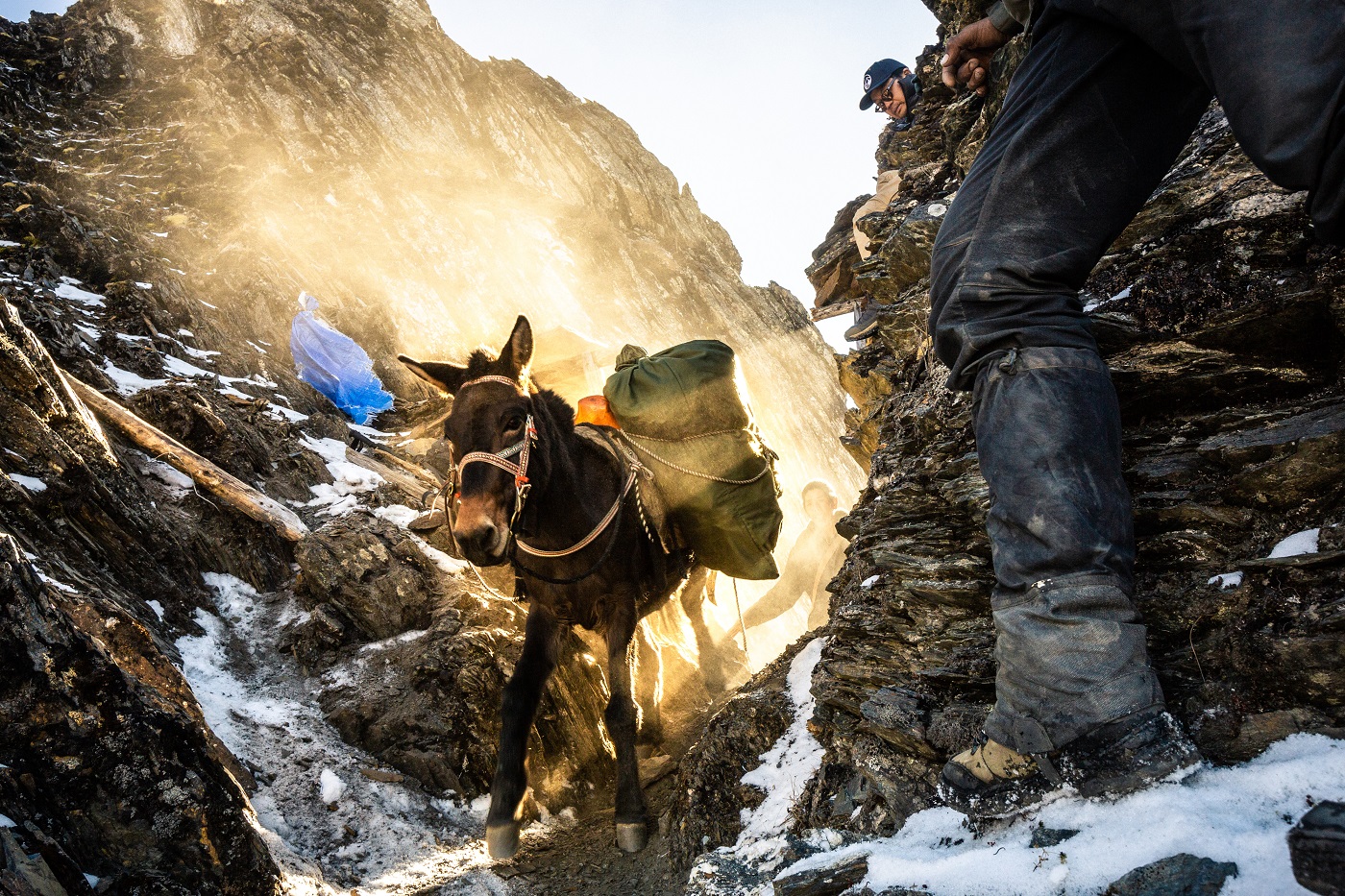 In short the Caravan is a full-round experience, immersive in the history, in local culture and heritage, in powerful nature. Some priceless time outside the contemporary world, with an exceptional host. Beside the regular Caravan departure, a Yi Horse Festival special date is carefully prepared once per year (a cross-region from Yunnan to Sichuan), and two Expedition date are set by the end of the year (November 2019). Private options are always possible. For all these, do not hesitate to get in touch with us.
In short the Caravan is a full-round experience, immersive in the history, in local culture and heritage, in powerful nature. Some priceless time outside the contemporary world, with an exceptional host. Beside the regular Caravan departure, a Yi Horse Festival special date is carefully prepared once per year (a cross-region from Yunnan to Sichuan), and two Expedition date are set by the end of the year (November 2019). Private options are always possible. For all these, do not hesitate to get in touch with us. 